Do you ever feel sadder during rainy days?

Personally, gray clouds, drizzly skies, and rainy days make me feel more tired or sad than usual. However, I know I am not the only one. According to Caijuan Xy, Weikia Wu, Danni Peng-Li, Peilin Xu, Dong Sun, and Bin Wan’s research, intraday weather conditions can influence self-report of depressive symptoms. Aside from that, they also found people are more likely to report symptoms of depression during cloudy or overcast weather.
The connection between the rainy weather and low moods, as well as seasonal depression
Depression is a mental health condition that involves specific diagnostic criteria. So, the rain will remain unlikely to directly cause a depressive episode. Symptoms of depression would include feelings of sadness, hopelessness, and emptiness, fatigue or lack of energy, feelings of guilt or diminished self-worth, changes in sleep and appetite, and suicidal thoughts. A mix of factors, on the other hand, can help explain why rain casts a shadow on moods.
This centers around Major Depressive Disorder (MDD) with a seasonal pattern or most commonly known as Seasonal Affective Disorder (SAD).
The seasonal affective disorder involves depression symptoms during certain times of the year. This usually happens when the rainy weather comes. However, there are people who also experience SAD during the sunniest parts of the year. Living with SAD means you will more likely experience negative effects on your mood as a result of the weather.
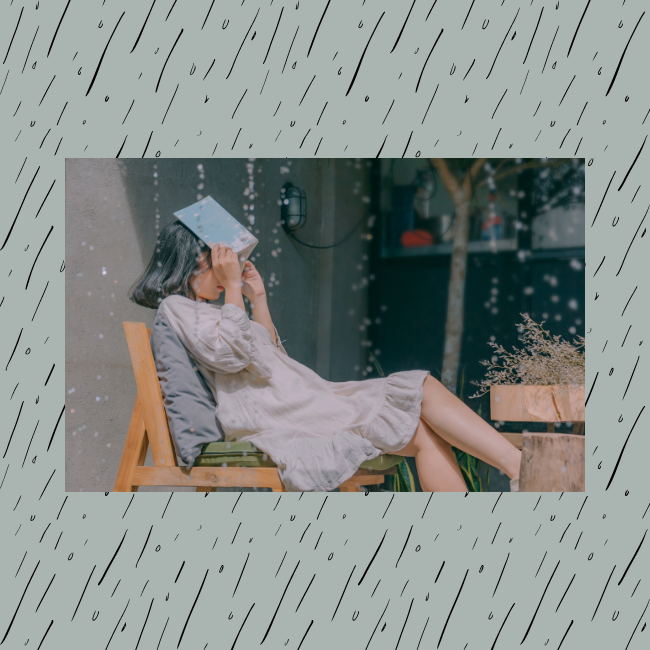
However, rainy weather can still impact your mood even if you don’t have a seasonal affective disorder diagnosis. Here are a few reasons why:
Lack of serotonin and melatonin due to lack of sunlight.
Inevitably, the lack of sunlight comes with most rainy days. And, it could be the key to people’s low moods. The reason behind this relates to the connection between serotonin, melatonin, and sunlight. Basically, it turns out that a sunny disposition is more than just an expression. Brigham Young University (BYU) researchers found more mental health distress in people during seasons with little sun exposure.
When sunlight enters your eyes, it stimulates the parts of your retina that cue your brain to produce serotonin. Being exposed to less sunlight doesn’t just affect your tan lines. It also affects how much serotonin your body produces. Serotonin is a neurotransmitter hormone that plays a role in regulating mood, emotions, appetite, and digestion.
Rainy weather foils mood-boosting activities.
It’s natural to feel sad or disappointed when rainy weather foils your go-to mood-boosting activities. The longer you find yourself stuck indoors, the more profound these negative mood effects may become. So, you might experience lower energy or fatigue when heavy rain keeps you inside if you would usually head outside.
Transform a rainy day from repugnant to indulgent by setting the mood. It’s hard to make plans with so much rain in the forecast. So, take a cue from Mother Nature herself and use the rainy weather as an opportunity to nourish your soul and grow. Do the things you’re normally too busy to do and allow it to boost your mood.
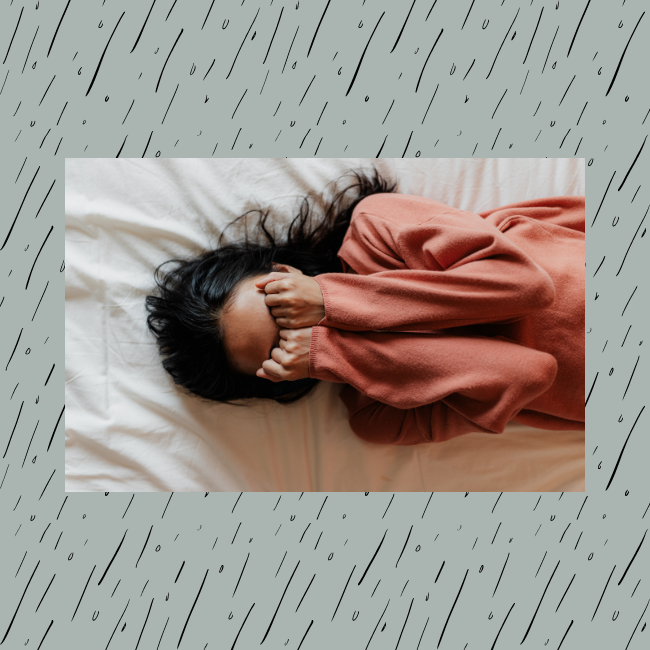
So, how would you relieve yourself from the rainy day blues?
A clinical psychologist in Washington State Kristine Berrett often jokes with her clients that humans are solar-powered. In her clinical practice, she sees a streak of rainy days as depressive symptoms, life crises, and relationship issues increase.
PHOTOTHERAPY.
Light therapy or phototherapy is a treatment involving exposure to an artificial light source. Primarily treating SAD, researchers say it may improve the symptoms of depression. It works on the biological clock as it aligns the brain’s 24-hour cycle aka the circadian rhythm. It also balances the activation of serotonin circuitry in your brain. Aside from that, light therapy can contribute to stable and consistent sleep patterns, as well as increasing alertness.
The way phototherapy works revolve around compensating for the lack of exposure to sunlight that may contribute to SAD. During a light therapy session, you usually will sit near a light box or lamp which emits bright light. The box or lamp usually mimics natural sunlight. However, there can be variations between devices made by different manufacturers.

EXERCISE INDOORS.
The rainy weather shouldn’t limit your routine. Blast your favorite music and remain active even without leaving your house. You can blast your favorite music and have an impromptu dance party alone or with your family members. Aside from that, you can also find a workout video on YouTube and replicate it on your own. Of course, you can also tick some chores off your list.
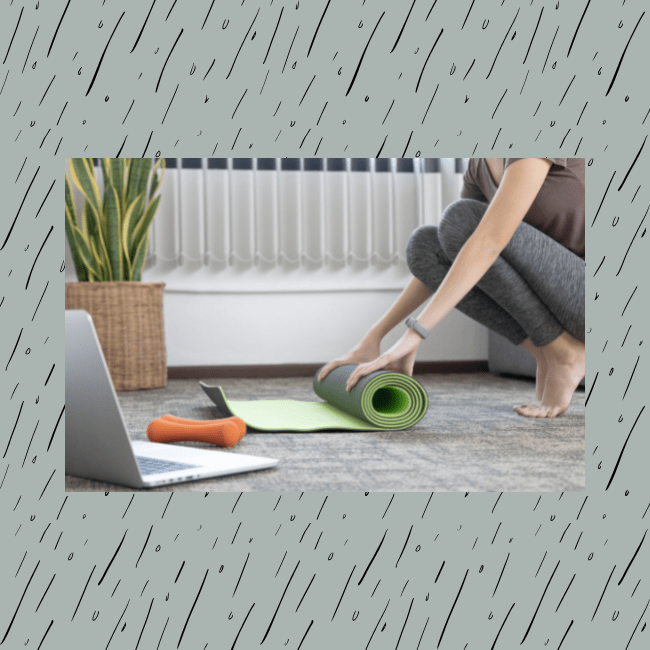
KEEP TO YOUR REGULAR SLEEP SCHEDULE.
Since you might find yourself feeling more tired during the dark and rainy days, experts encourage keeping to a regular sleep schedule. Despite feeling really tired, regulating sleep can help you feel more motivated and energized even when it’s cloudy and rainy outside.
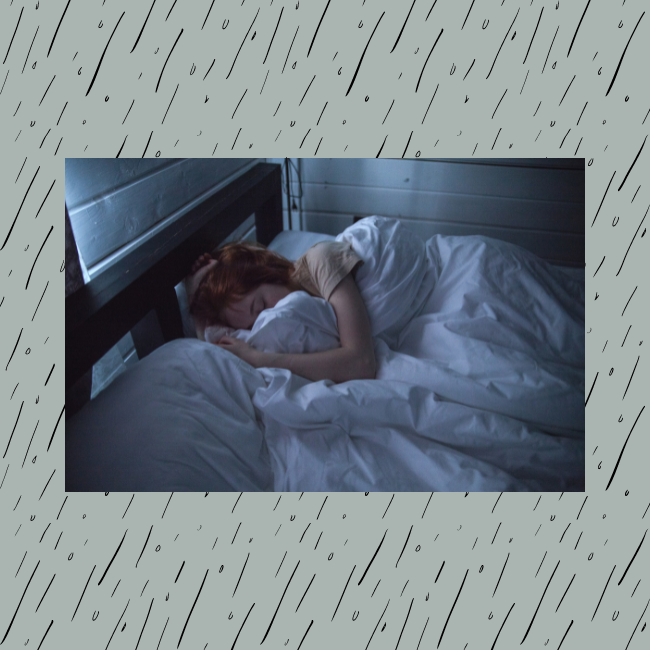
DO NOT ISOLATE YOURSELF.
Isolation plays a part in mental health symptoms. The longer the isolation, the more severe the potential effects. Ongoing ran can also become another force that keeps you from getting out and about. Experts also explained that they encourage to continue planning gatherings with others.
Of course, the in-person gatherings include lunch dates, game nights, or movie dates. Although in-person gatherings have decreased due to the COVID-19 pandemic, these remain essential for emotional well-being. Humans are neurologically wired to connect with others. Although electronic connections are better than nothing, it doesn’t fully meet social needs.
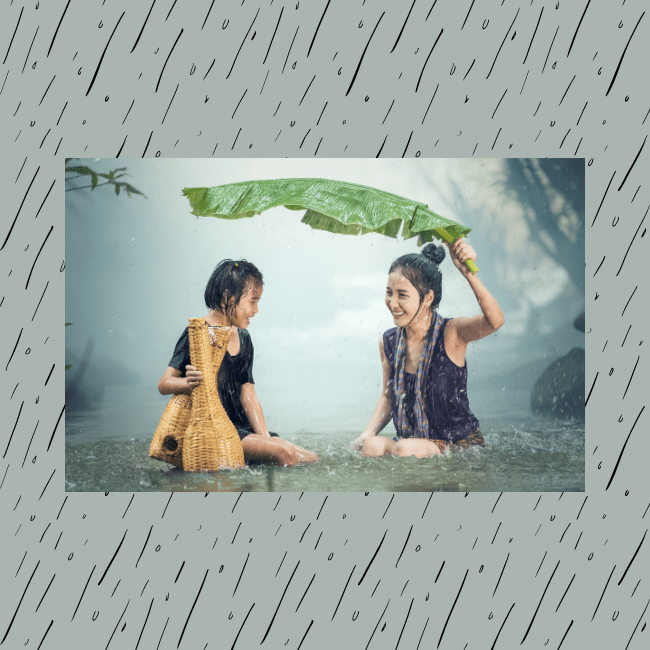
The rainy season isn’t for everyone. If it makes you feel down in the dumps, it is important to note that you are not alone.
Angela Grace P. Baltan has been writing professionally since 2017. She doesn’t hesitate to be opinionated in analyzing movies and television series. Aside from that, she has an affinity for writing anything under the sun. As a writer, she uses her articles to advocate for feminism, gender equality, the LGBTQIA+ community, and mental health among others.






